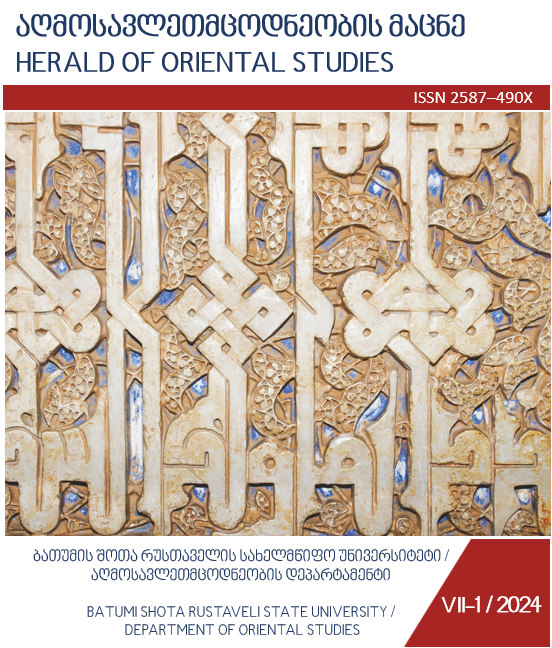Samurai - An Integral Part Of Japanese History
DOI:
https://doi.org/10.61671/hos.7.2024.7796Keywords:
Samurai, Japan, Zen-Buddhism, Bushido, ShogunateAbstract
In the presented work are discussed and analyzed life and activities of samurai - the specific Japanese phenomenon, their rise in the military arena, and finally - the end. In this context, attention is focused on their code of moral and ethical behavior - bushido, ideology, lifestyle, military art, etc. From the very beginning, it should be emphasized that the samurai layer is an integral component of Japanese history, as throughout the long period of the Middle Ages it was one of the main actors in the political, military and socio-eco-nomic life of the country. The samurai first appeared in the arena of history in the 8th century as armed squads of individual feudal lords. Since that time, their status and importance gradually increased, which was directly related to the current processes in the country. This includes, first of all, permanent internal wars between feudal clans, the main actors of which were the samurai. They were obliged to serve faithfully their master, protecting his interests both in times of war and in times of peace.
Samurais reached the zenith of their power in the 16th cen-tury, when they became one of the most privileged classes of the
country. However, later, their status changed radically, which was connected with the bourgeois revolution of 1867/1868 and with the current so-called Meiji reforms. The result of the mentioned events was the overthrow of the military-feudal system - the Shogunate and restoration of the sole rule of the emperor in Japan. In the new historical reality, when Japan embarked on the path of Westernization of development, the military units of the samurai were already reco-gnized as a time-worn remnant of the feudal system. That is why the samurai army was declared abolished, and therefore, it has already become a part of history.



































